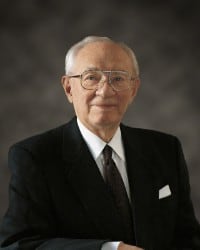
“Of all the victories in the chronicles of humanity, none is so great, none so universal in its effects, none so everlasting in its consequences as the victory of the crucified Lord, who came forth from the tomb that first Easter morning. . . .”
LDS Quotes on Resurrection

“Of all the victories in the chronicles of humanity, none is so great, none so universal in its effects, none so everlasting in its consequences as the victory of the crucified Lord, who came forth from the tomb that first Easter morning. . . .”
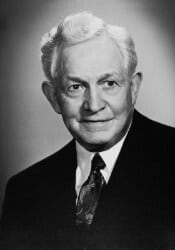
As Christ lived after death so shall all men live, each taking his place in the next world for which he has best fitted himself. The message of the resurrection, therefore, is the most comforting, the most glorious ever given to man, for when death takes a loved one from us, our sorrowing hearts are assuaged by the hope and the divine assurance expressed in the words: “He is not here: he is risen.” Because our Redeemer lives, so shall we. I bear you witness that he does live. I know it, as I hope you know that divine truth. May all mankind some day have that faith.
| Gospel Ideals, p. 48

“These are the most reassuring words in all of human history [referencing (Matt. 28:1–2, 5–6)]. Death—universal and final—had now been conquered. Never had this occurred before. There had been only death without hope. Now there was life eternal. Only a God could have done this. The Resurrection of Jesus Christ was the great crowning event of His life and mission. It was the capstone of the Atonement. The sacrifice of His life for all mankind was not complete without His coming forth from the grave, with the certainty of the Resurrection for all who have walked the earth.”
| “This Glorious Easter Morn”
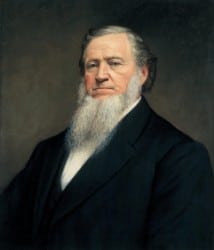
All who have lived on the earth according to the best light they had, and would have received the fullness of the Gospel had it been preached to them, are worthy of a glorious resurrection, and will attain to this by being administered for, in the flesh, by those who have the authority. All others will have a resurrection, and receive a glory, except those who have sinned against the Holy Ghost. It is supposed by this people that we have all the ordinances in our possession for life and salvation, and exaltation, and that we are administering in these ordinances. This is not the case. We are in possession of all the ordinances that can be administered in the flesh; but there are other ordinances and administrations that must be administered beyond this world. I know you would ask what they are. I will mention one. We have not, neither can we receive here, the ordinance and the keys of the resurrection. They will be given to those who have passed off this stage of action and have received their bodies again, as many have already done and many more will. They will be ordained, by those who hold the keys of the resurrection, to go forth and resurrect the Saints just as we receive the ordinance of baptism, then the keys of authority to baptize others for the remission of their sins. This is one of the ordinances we cannot receive here, and there are many more. We hold the authority to dispose of, alter and change the elements; but we have not received authority to organize native element, to even make a spear of grass grow.
| Journal of Discourses, p. 397
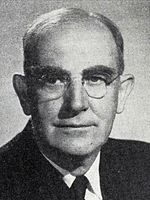
“It is faith that will roll back the stone across the path of the human race and let the spirit of the Son of Man come again.”
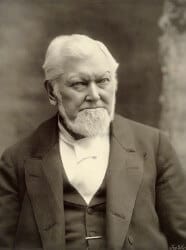
When we get to the other side of the veil, we shall know something. We now work by faith. We have the evidence of things not seen. The resurrection, the eternal judgment, the celestial kingdom, and the great blessings that God has given in the holy anointings and endowment in the temples, are all for the future, and they will be fulfilled, for they are eternal truths. We will never while in the flesh, with this veil over us, fully comprehend that which lies before us in the world to come. It will pay any man to serve God and to keep His commandments the few days he lives upon the earth.
| Teachings of Presidents of the Church: Wilford Woodruff, p. 154
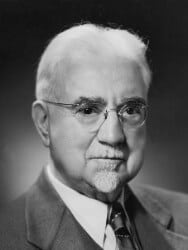
We are in possession of all the ordinances that can be administered in the flesh; but there are other ordinances and administrations that must be administered beyond this world. I know you would ask what they are. I will mention one. We have not, neither can we receive here, the ordinance and the keys of the resurrection. They will be given to those who have passed off this stage of action and have received their bodies again, as many have already done and many more will. They will be ordained, by those who hold the keys of the resurrection, to go forth and resurrect the Saints. . . .This is one of the ordinances we cannot receive here, and there are many more.
| The Discourses of Brigham Young, p. 397
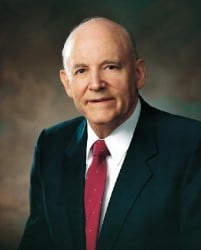
Elder Howard W. Hunter proclaimed that “the doctrine of the Resurrection is the single most fundamental and crucial doctrine in the Christian religion. It cannot be overemphasized, nor can it be disregarded. Without the Resurrection, the gospel of Jesus Christ becomes a litany of wise sayings and seemingly unexplainable miracles – but savings and miracles with no ultimate triumph. No, the ultimate triumph is in the ultimate miracle: for the first time in the history of mankind, one who was dead raised himself into living immortality.”
| Conference Report, April 1986, p. 18
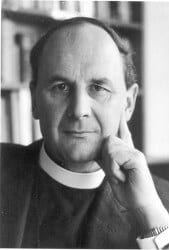
“Christianity, inasmuch as it is the confession of Jesus of Nazareth as the living and powerfully effective Christ, begins at Easter. Without Easter there is no Gospel . . . no faith, no proclamation, no Church, no worship, no mission.”
| “Resurrection in the NT,” The Interpreter’s Dictionary of the Bible, ed. G. A. Buttrick, et al. (Nashville: Abingdon, 1962–76), 4:43.
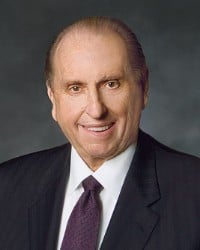
From [the] majestic world of spirits we enter the grand stage of life to prove ourselves obedient to all things commanded of God. During mortality we grow from helpless infancy to inquiring childhood and then to reflective maturity. We experience joy and sorrow, fulfillment and disappointment, success and failure. We taste the sweet, yet sample the bitter. This is mortality. Then to each life comes the experience known as death. None is exempt. All must pass its portals. To most, there is something sinister and mysterious about this unwelcome visitor called death. Perhaps it is a fear of the unknown which causes many to dread its coming . . . [The Savior’s] words to the grieving Martha and to His disciples today bring comfort to us:” ‘I am the resurrection, and the life: he that believeth in me, though he were dead, yet shall he live.”
| “Mrs. Patton – the Story Continues,” Ensign, November 2007, pp. 22-23